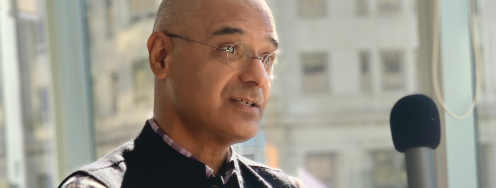The IAEA’s Role in Breaking the Deadlock with Iran
On the radar: Coming clean to the IAEA; the Problems with loose war talk; a Personal account from July 16, 1945; India’s developing arsenal; Kim Jong-Un purges top official; Another former Israeli official opposes strikes; and Why a Nuke Won’t Stop a Hurricane.
July 16, 2012 | Edited by Benjamin Loehrke and Leah Fae Cochran
The other talks - The IAEA has yet to convince Iran to let inspectors investigate allegations of past nuclear weapons activities. These IAEA-Iran discussions, although a separate from the ongoing P5+1 talks, are linked to resolving both tracks of negotiations, according to experts in a recent Reuters article.
--Ali Vaez of the International Crisis Group said, "We are in a chicken and egg conundrum, where Iran's nuclear crisis cannot be resolved without the IAEA giving Iran a clean slate, but that will not happen until the crisis is resolved.” The IAEA will likely have to offer immunity or ease sanctions to get a deal. Full-story here. http://reut.rs/SAwQ63
Counterproductive threats - “Loose talk of war” could make an Iranian nuclear weapon more likely, notes Dylan Williams. Such military threats could drive up oil prices and increase revenue for the Iranian regime, give the regime security incentives to race for a bomb, and by rally Iranians behind the regime.
--”It has become clear that the success of the critical effort to prevent Iran from obtaining a nuclear weapon hangs on the outcome of diplomacy. Those pushing the American Government to threaten military force must come to realize that their words not only strengthen Tehran's hand in negotiations, but hasten the day when a nuclear weapon could be in its grasp,” writes Dylan Williams at Mideast Channel. http://bit.ly/NMRGxR
Tweet - @Cirincione: Happy Birthday, Atomic Bomb! 67 years old today. Isn't it time to retire?
Welcome to Early Warning - Subscribe to our morning email or follow us on twitter.
--Have a tip? Email earlywarning@ploughshares.org. Want to support this work? Click here.
”Then came a burst of white light” - “The enormity of the light and its length quite stunned me. My instantaneous reaction was that something had gone wrong and that the thermal nuclear transformation of the atmosphere, once discussed as a possibility and jokingly referred to a few minutes earlier, had actually occurred.” note J.B. Conant, then President of Harvard, on his experience at the Trinity nuclear. Alex Wellerstein at Restricted Data has the full written account. http://bit.ly/OJdW99
Indian nuclear forces - India has produced 80-100 nuclear warheads, but has produced enough weapons-grade plutonium for 100-130. The arsenal may be getting ready to increase as India continues development of a nuclear triad, note Hans Kristensen and Robert Norris in a new report.
--”Indian Nuclear Forces, 2012” by Hans Kristensen and Robert Norris in The Bulletin of the Atomic Scientists. (pdf) http://bit.ly/OJg3Kb
Purged - Although there has been little change in policy since Kim Jong-Un assumed leadership of North Korea after his father’s death last year, the ouster of a top advisor to the previous regime, Vice Marshal Ri Yong-ho, is the latest sign that the young ruler is consolidating power.
--The Vice Marshal “was seen as close to Kim's dictator father, [and] was relieved of his posts in the Workers' Party of Korea at a politburo meeting on Sunday including the powerful role of vice chairman of the Central Military Commission.” Reuters has the story.http://reut.rs/NqMgc7
Diplomacy, not strikes - “Former Israeli Nat’l Security Advisor: “Right way to deal with Iran was through diplomacy” writes Barbara Slavin in Al Monitor on recent comments from former IDF planning chief and National Security Advisor Giora Eiland. http://bit.ly/P9S3n1
Bad Idea - Nick Roth at The Nukes of Hazard points out that the National Oceanic and Atmospheric Administration devotes an entire web page to convincing people that lobbing a nuclear weapon into a hurricane is a bad idea.
--Among the reasons: the energy in a nuclear weapon would not affect the energy output of a hurricane, and the winds would quickly spread the radioactive fallout to land. Not convinced? Read the post here. http://bit.ly/OFGpMX



